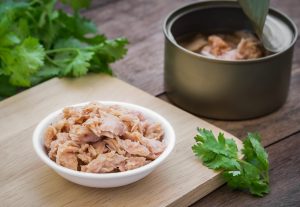 Some minerals get a lot of name recognition. Selenium isn’t one of them. While you might not hear about it as much as magnesium, potassium, or calcium, it’s very important to your overall health.
Some minerals get a lot of name recognition. Selenium isn’t one of them. While you might not hear about it as much as magnesium, potassium, or calcium, it’s very important to your overall health.
It’s considered a trace mineral, which means you don’t need very much of it. This is terrific because it means that you can get it all from a healthy diet. Like virtually every other nutrient, natural foods are the best source.
Advertisement
Selenium is best known for being a powerful antioxidant that helps protect your cells from free radicals, helping to reduce inflammation and fight pre-mature aging.
One of its major benefits may be immune support. Selenium plays an important role in glutathione production, which can help your body make more antioxidants and encourage new cell growth. This helps boost immunity and fight pre-mature aging.
There are other potential benefits to selenium, like metabolizing thyroid hormones and helping other antioxidants do their job. You can get all of them by consuming just 55 micrograms (mcg) per day.
So, where can you get it? Here are some of the best options:
Advertisement
Brazil nuts have a ton of selenium. In fact, eating just one or two per day can get you there (they have 68-91 mcg per nut). Fish and shellfish like salmon, tuna, shrimp, and crab are also great sources. A three-ounce serving of any can supply 40-92 mcg.
A serving of beef will generally offer about 50 mcg, depending on the type. A round steak will get you the 50 mcg, but a serving of ground beef (a burger) will only offer about 22 mcg.
Turkey, chicken, eggs, cottage cheese, and brown rice can also supply good servings of selenium. As you can see, it’s pretty easy to get regardless of your diet. As long as you’re eating whole, natural foods, you should be enjoying the anti-aging benefits of selenium.
